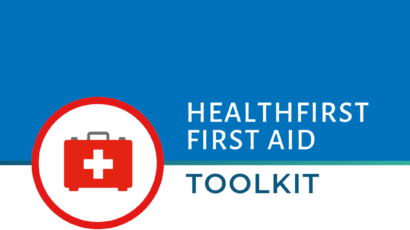New shoes, schoolbags, uniforms and stationery are now purchased and your family is starting to settle back in to their usual routine after the summer break. But this routine can easily be rudely interrupted by one of your kids picking up an infection and then passing it on to everyone else. Just what you need!
So, how do you know when you can manage your children’s coughs and colds at home yourself and when you should be taking your child to see the doctor? There are some signs that you can look out for and some general information that can help. Note that we’re talking about otherwise healthy children here – not children who may have underlying health problems like asthma or heart or kidney problems. And we’re also talking about children over the age of 6 months. The very little ones have immune systems that aren’t quite as robust and so may need medical attention earlier.
Most coughs in children are just due to a common cold, usually caused by a viral infection. The common cold is confined to the upper part of the respiratory tract. It hasn’t travelled to the lungs causing a chest infection.
When a young child catches a cold, they’ll often develop a noisy chest because of their smaller airways and thinner ribcages but this does not usually mean that they have developed a chest infection. They may have a bit of a mild fever but will generally still be playful and will be eating and drinking as normal. However, a child who develops a true chest infection will be much more unwell.
Signs to look out for which may indicate that a child is more unwell (that a cough is more serious) include:
- They may be drowsy or irritable, or a young baby may be persistently crying.
- Their breathing rate may be increased and they may show signs of having to work harder to breathe. For example, you may see the skin and tissues below and in between a child’s ribs are being ‘sucked in’ every time they breathe.
- Their skin colour may have changed: they may appear pale, or they may look blue or dusky around their lips.
- Their hands and feet may feel cold while their body is warm.
- They might have a very high temperature that doesn’t go down with treatment.
- They may not be feeding or eating/drinking very well.
- They may be showing signs of dehydration. Signs of dehydration include not passing much urine, a dry mouth, a dry tongue and lips, fewer tears when crying, sunken eyes, general weakness and being irritable or lethargic.
If you’re worried that your child is showing any of these symptoms or signs, or there is anything else that you are worried about, then their cough could be a sign of something more serious, so they should see a doctor as soon as possible. In severe situations, this may mean calling 144 for an ambulance.
But, if your child has a cough, perhaps a bit of a runny nose and a bit of a mild fever but is otherwise well, then it’s unlikely that their cough will be the sign of anything serious like a chest infection and you can usually manage their symptoms at home.
In the end, your child’s immune system will usually get rid of the infection itself but you can help alleviate their symptoms by:
- Giving them plenty to drink. Apart from preventing dehydration, drinks will also help to loosen any phlegm and make sure that their throat doesn’t dry out.
- Using paracetamol and/or ibuprofen to help relieve any pain or fever. Their mechanism of action is different so if one hasn’t worked, you can use the other. Just make sure that you read the dosing instructions carefully and that you check the labels on the bottles for the generic drug name. Trade names for drugs can often be confusing – you don’t want to give two lots of paracetamol instead of one lot of paracetamol and one lot of ibuprofen. Some medicines can contain more than one drug as well, so watch out for that.
- Trying saline nasal drops. These are a popular treatment used to help relieve a stuffy nose and may be especially useful if given to younger children just before a feed. You can buy them in pharmacies.
The other thing is to make sure that no one around your child smokes. A child who lives with a smoker has an increased risk of developing coughs and colds and ear infections as well.
A cough related to a common cold can last anywhere up to about 3 weeks and an average pre-school/primary school child has somewhere between 3 and 8 colds a year. You can also get several colds running into each other and so sometimes it seems like your child has one continuous cold!
If you are managing your child’s cough at home, in general I would say that you should take your child to see the doctor if their cough has been present for more than 3 weeks, or if their symptoms are getting worse rather than better after about 5 days.
And remember to think about others and pass on to your children that motto that we learnt when we were young: “Coughs and sneezes spread diseases; trap your germs in a handkerchief”. Just a hand in front of the mouth/nose when coughing or sneezing and regular hand-washing will do.
Dr Michelle also has a weekly radio show about health on World Radio Switzerland, Switzerland’s English-speaking radio station. You can listen to a podcast giving more information about coping with the back to school coughs, colds and sore throats by following this link:





